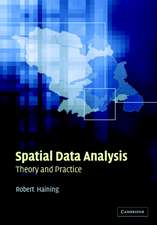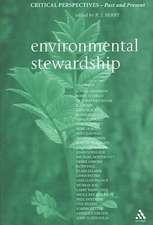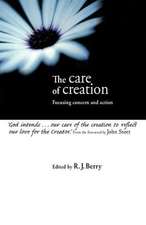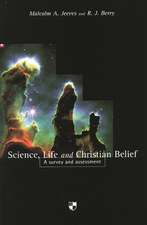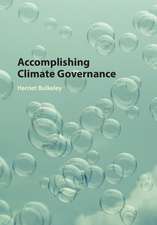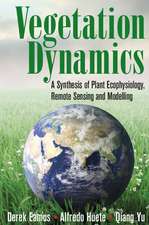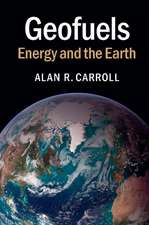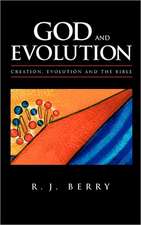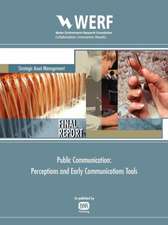Environmental Attitudes through Time
Autor R. J. Berryen Limba Engleză Paperback – 25 apr 2018
| Toate formatele și edițiile | Preț | Express |
|---|---|---|
| Paperback (1) | 281.39 lei 6-8 săpt. | |
| Cambridge University Press – 25 apr 2018 | 281.39 lei 6-8 săpt. | |
| Hardback (1) | 545.16 lei 6-8 săpt. | |
| Cambridge University Press – 25 apr 2018 | 545.16 lei 6-8 săpt. |
Preț: 281.39 lei
Nou
Puncte Express: 422
Preț estimativ în valută:
53.84€ • 56.42$ • 44.51£
53.84€ • 56.42$ • 44.51£
Carte tipărită la comandă
Livrare economică 11-25 aprilie
Preluare comenzi: 021 569.72.76
Specificații
ISBN-13: 9781107679481
ISBN-10: 1107679486
Pagini: 276
Ilustrații: 53 b/w illus. 3 maps 1 table
Dimensiuni: 152 x 228 x 14 mm
Greutate: 0.45 kg
Editura: Cambridge University Press
Colecția Cambridge University Press
Locul publicării:New York, United States
ISBN-10: 1107679486
Pagini: 276
Ilustrații: 53 b/w illus. 3 maps 1 table
Dimensiuni: 152 x 228 x 14 mm
Greutate: 0.45 kg
Editura: Cambridge University Press
Colecția Cambridge University Press
Locul publicării:New York, United States
Cuprins
Preface; 1. Choices; 2. No primeval Eden; 3. Striving with nature; 4. Nature's study; 5. Scientific method and the new biology - controlling; 6. Science in public affairs - organizing; 7. National nature - a digression; 8. The regulatory century; 9. Running out of world; 10. Reckoning, perhaps rueing; 11. From scavenging to supermarkets; Index.
Recenzii
'For those who think that environmentalism is a twenty-first Century obsession it will be a surprise to find that the burning of coal was banned in London because it was 'prejudicial to health' as long ago as 1273! These and a myriad of other facts litter the pages of this magisterial book which surveys centuries of environmental concern. Professor Berry shows that there is no human activity that is environmentally neutral. Drawing on science, philosophy, ethics and theology he examines the relationship between humanity and nature. From the Earth Charter to Ecosystems, from Gaia to God he explores the shifting attitudes to caring for creation. He is one of the elders of the environmental movement with his own distinctive and influential voice. His chapter on Awe is the best bridge over which any one could walk to survey the imaginary chasm between science and religion.' The Right Reverend James Jones, KBE, formerly Bishop of Liverpool
'The developments of science and conservation over time are intricately woven together in this scholarly account of human attitudes to nature. This walk through the history of interactions with the environment brings together science, politics and philosophy in a most engaging way, and offers a factual and historical account of what humans are doing to destroy or to research and preserve the natural environment from classical times to the present day. The author, a naturalist, ends by stressing a post-materialist view that recognises the awe of nature and concludes that to halt destruction an ethical and moral solution is needed. Anyone concerned about the protection of nature will gain a lot from this compendium of attitudes to the environment over time. I am sure that this book with so much information from the past will help to change attitudes to nature today.' Sir Ghillean Prance, Former Director of the Royal Botanic Gardens, Kew
'This is a very enjoyable book, rich in detail and broad in perspective, exploring the history of human relationships with the natural world, and their longer term consequences. Clearly written and authoritative, it is informed by R. J. Berry's wide experience from a lifetime in ecology and his regular engagement with environmental policy and conservation. He considers human history, and people's progressive emancipation from environmental risks and hazards, but also their ultimate dependence on nature. He outlines the logical case for accepting a responsible environmental attitude. I recommend this to anyone interested in understanding the history of environmentalism. R. J. Berry shows clearly that this understanding is key to taking proper responsibility for the environment, but that to do so successfully we have to accept that we are a part of nature, while at the same time we are apart from nature.' Dame Georgina MacE, University College London
'The developments of science and conservation over time are intricately woven together in this scholarly account of human attitudes to nature. This walk through the history of interactions with the environment brings together science, politics and philosophy in a most engaging way, and offers a factual and historical account of what humans are doing to destroy or to research and preserve the natural environment from classical times to the present day. The author, a naturalist, ends by stressing a post-materialist view that recognises the awe of nature and concludes that to halt destruction an ethical and moral solution is needed. Anyone concerned about the protection of nature will gain a lot from this compendium of attitudes to the environment over time. I am sure that this book with so much information from the past will help to change attitudes to nature today.' Sir Ghillean Prance, Former Director of the Royal Botanic Gardens, Kew
'This is a very enjoyable book, rich in detail and broad in perspective, exploring the history of human relationships with the natural world, and their longer term consequences. Clearly written and authoritative, it is informed by R. J. Berry's wide experience from a lifetime in ecology and his regular engagement with environmental policy and conservation. He considers human history, and people's progressive emancipation from environmental risks and hazards, but also their ultimate dependence on nature. He outlines the logical case for accepting a responsible environmental attitude. I recommend this to anyone interested in understanding the history of environmentalism. R. J. Berry shows clearly that this understanding is key to taking proper responsibility for the environment, but that to do so successfully we have to accept that we are a part of nature, while at the same time we are apart from nature.' Dame Georgina MacE, University College London
Notă biografică
Descriere
Unpacks humanness and how it shapes our interactions with the environment, helping readers to make responsible decisions about the future.



